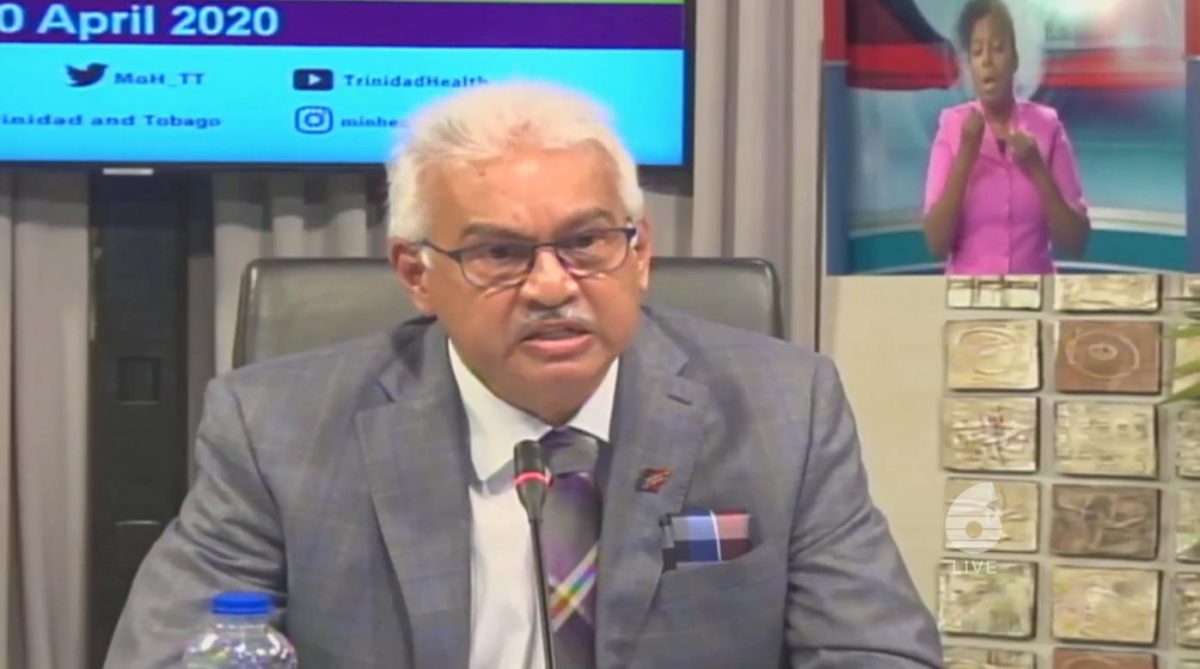(Trinidad Guardian) CARIRI and PAHO have been engaged, while the Health Ministry has launched a separate investigation into the deaths of seven babies at the Neonatal Intensive Care Unit of the Port of Spain General Hospital between April 4th and 7th, according to Health Minister Terrence Deyalsingh.
Before Parliament yesterday, Minister Deyalsingh offered condolences to the families affected.
“Mr. Deputy Speaker, through you, I wish to advise this Honourable House that as of April 7, no new infections have been reported, and I am advised that new admissions have resumed as of Wednesday 10th April.
“Mr. Deputy Speaker through you, I want to reassure this Honourable House that throughout this challenging situation, I am advised that senior doctors and nurses were present, providing care to the neonates, and parents were regularly updated on their babies’ condition. We recognise the emotional toll this has taken on the families, and all parents have been offered bereavement counselling by the NWRHA,” he said.
According to Deyalsingh, the NWRHA has always implemented stringent Infection Prevention and Control Practices. He said immediately upon recognising the seriousness of the situation, existing escalated protocols were initiated.
Meanwhile, the parents of the babies are calling for a full investigation into the circumstances surrounding the deaths. The babies, all under 32 weeks, died from sepsis. Guardian Media understands that at least one other baby is in critical condition.
The North West Regional Health Authority, in a press release issued on Thursday evening, confirmed the deaths of the babies saying it was as a result of infections. The authority said laboratory tests detected the presence of three dangerous organisms—Serratia marcesens, ESBL Klebsiella pneumoniae, and Klebsiella aerogenes.
“Despite administering high-dose antibiotics and providing advanced and intensive cardio-respiratory support, the infection claimed the lives of some of these preterm babies, all weighing under 1500 grammes and less than 32 weeks gestational age.
“Throughout this challenging ordeal, senior doctors were present providing care to the babies. Parents were regularly updated of their conditions. All parents have been referred to our Medical Social Work Department for bereavement counselling,” the NWRHA said in its release.
Before the NWRHA’s release, three sets of parents, Guardian Media spoke with, said that the true case of the deaths was not revealed to them. They had questions about how the situation was handled. The parents all said the deaths came as a terrible surprise because, before the weekend, their children were all healthy.
One mother, who asked not to be named, wept uncontrollably as she spoke, pausing numerous times during the interview to try and compose herself. She said she doesn’t know where to begin to come to terms with the loss of her daughter.
She said she fought hard for her girl, spending a month in the hospital because of hypertension issues, and then having an emergency C-Section, only for this to happen.
“She started to see. She was moving. She would have been four weeks on Saturday. Everything was well. I held her, I spoke with her. All the tests they took showed nothing.
“There were no signs of infection at that point, until around Saturday I got a call from the hospital saying that they moved her and put her in the back. I don’t know where. I don’t know why they moved her, but they had moved her from that area. After that, when I went in on Saturday to look for her, I realised all the babies, who were with her, weren’t there. The hospital staff was doing cleaning, intense cleaning. But they never told us what it is—even up to now,” the mother said.
According to the mother, there were ten babies in the NICU at the same time her daughter was there. She said she heard three of them died in a single day. One mother lost twins—one to a separate cause of death.
“What I heard was that there was a baby that came in with an infection and after that, there was a widespread infection.
“They said they tried with her. She just declined suddenly like in no time. She just suddenly had all kinds of things going wrong with her,” a mother said.
Guardian Media also spoke with the father of a third baby girl who died. He believed that the families were not being told the truth.
“To tell you the truth, that’s a real mad scene. All those babies died. It’s hard—real, real hard. My daughter was healthy and everything when I saw her. I went back to see her and there were all these tubes inside of her.
“I think they are covering up. Something is wrong. I’ll talk to my wife and decide the next step we will take because right now everybody is just down,” he said.
According to the NWRHA, between April 4 and 7, NICU staff observed a rapid deterioration in the clinical status of several neonates. It said upon recognising the severity of the situation, the medical team immediately initiated infectious diseases and control protocols for the treatment of late-onset neonatal sepsis.
“In response to this heartbreaking situation, the NICU was immediately closed to new admissions to prevent further transmission of the infection and healthy babies discharged. Rigorous sanitisation and sterilisation measures were implemented with external contractors involving clinical and non-clinical areas,” the release said. The NWRHA also expressed condolences to the affected families.
The deaths of the babies came as Trinidad and Tobago’s median neonatal mortality rate in 2022 (the latest available data), according to UNICEF, was 9.75.
That was T&T’s lowest rate over the last 34 years. It was lower than the world’s neonatal mortality rate of 17.27 but higher than the Latin American and Caribbean rates of 9.03.






